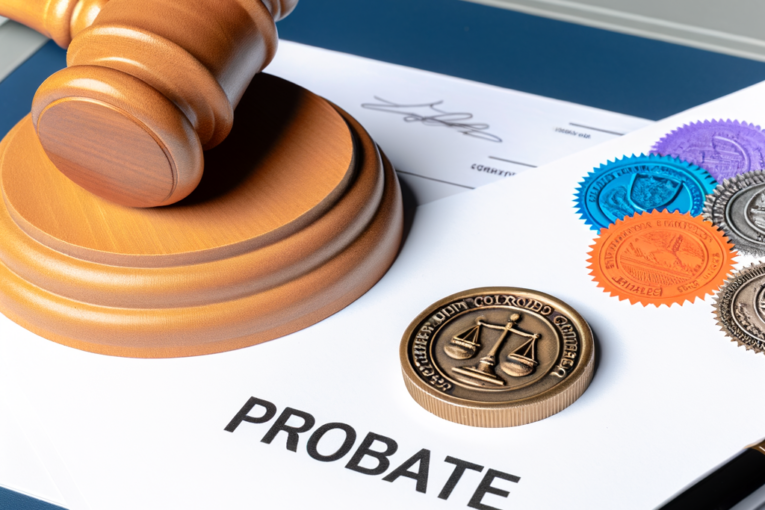Navigating the Crossroads: A Comprehensive Guide to Divorce Mediation
Introduction
Divorce mediation has become an increasingly popular alternative to traditional divorce litigation. Divorce mediation is a process in which a qualified third party, called a mediator, helps facilitate negotiations between divorcing spouses to reach mutually agreeable solutions. The mediator does not make decisions but rather guides the discussion and helps identify options.
There are several key benefits divorce mediation provides over going to court:
- Cost savings: Mediation sessions typically cost significantly less than litigation attorneys and court fees. The non-adversarial process also usually requires less time.
- Flexibility: Couples have more flexibility to craft customized agreements rather than abiding by court decisions.
- Privacy: Unlike court procedures and records, mediation sessions are confidential and conducted in private.
- Less conflict: With help from a neutral mediator, couples can have productive conversations, reducing hostility. This is especially beneficial when children are involved.
However, mediation often faces stigma and skepticism due to some common misconceptions, such as:
- Myth: Mediation is not legally binding.
- Truth: Final mediated agreements can become legally enforceable contracts.
- Myth: Mediation should not be used for complex or high-conflict cases.
- Truth: An experienced mediator can handle complex disputes and high emotions using specific techniques.
- Myth: The mediator makes all the decisions.
- Truth: The mediator facilitates, but the control stays with the couple to agree or disagree.
The mediation process empowers couples to play an active role in determining their future on their own terms, in a private and constructive manner. With an open mindset and professional guidance, mediation can pave the way for an amicable dissolution of marriage and partnership.
Understanding the Divorce Mediation Process
The mediation process provides a supportive framework for couples to have productive conversations about ending their marriage. Proper preparation and choosing an experienced mediator set the stage for reaching equitable agreements.
Selecting a Qualified Mediator
The mediator plays a crucial role in facilitating constructive communication and guiding the negotiations. Ideal mediators possess:
- Specialized divorce mediation training and credentials
- Strong listening, communication, and conflict resolution skills
- Experience mediating cases similar to yours
- Neutral and unbiased perspective
- Legal knowledge without direct legal advice
Resources to find qualified local mediators include state mediation associations, county bar associations, academic programs, or simply web searches. It’s advisable to interview a few potential mediators before deciding.
Preparing for Mediation
Being organized and ready to have open conversations makes mediation more efficient and effective. Helpful preparation tips include:
- Gather relevant documentation—tax returns, financial statements, property records, etc.
- Make a list of priority discussion topics and desired outcomes.
- Consult lawyers to understand your legal rights and obligations.
- Prepare your emotions for sensitive conversations.
- Arrange childcare if necessary.
The Mediation Process
While every mediation is unique, the typical mediation process has a few standard phases:
- Opening: The mediator introduces the process, establishes guidelines, and answers questions.
- Information Sharing: The couple presents their background, concerns, needs, and interests.
- Issue Identification: The mediator summarizes issues to address, like property, support, and custody.
- Bargaining and Negotiation: Creative brainstorming and negotiation over options
- Final Agreement: The mediator documents areas of consensus into a draft agreement.
- Closure: Draft agreement finalized into a binding contract, signed, and filed
Mediation Techniques and Strategies
Skilled mediators employ specific techniques to optimize the mediation experience:
- Active listening allows each spouse to share perspectives without judgment.
- Interest-Based Negotiation: Identifies mutual interests to generate win-win options
- Caucusing: Holding separate private meetings if emotions run high or reach impasse
- Reality-Testing: Ensuring expectations align with laws and plausible outcomes
- Identifying Common Ground: Establish points that parties agree on to build cooperation.
Leveraging these techniques, mediators empower couples to have constructive conversations to resolve differences on their own terms.
Key Issues Addressed in Divorce Mediation
Mediation provides a supportive environment for couples to have difficult conversations around complex emotional and financial issues that arise during divorce. While every situation is unique, some typical key issues discussed include child-related considerations, division of assets and property, spousal support, and overall financial planning.
Child Custody and Visitation
Creating custody and visitation arrangements in the best interest of children is often a top priority. Typical considerations include:
- Physical vs. legal custody
- Joint vs. sole custody options
- Developing age-appropriate parenting plans
- Designating custodial vs. visitation rights
- Determining a visitation schedule and transitions
- Rules regarding travel, medical decisions, and school choice
- Managing holiday and special occasion time
Mediators help couples have productive conversations by focusing discussions on the children’s wellbeing and needs. Making compromises involves striking a balance between practical considerations like work schedules and giving children stability and quality time with both parents.
Division of Assets and Property
Untangling finances and dividing accumulated property during divorce is complex. Through mediation, details around assets to split and the process for division can be addressed.
- Asset identification: a comprehensive list of all properties, valuations, and accounts
- Categorization: separate individuals vs. shared assets
- Equitable distribution: determine 50/50, 60/40, etc. based on circumstances.
- Asset division: agree on who gets what specific properties, assets, and valuables.
- Establish payment plans as compensation if it is not possible to divide assets equally by transfer.
Getting accurate appraisals and financial disclosures allows informed, out-of-court settlements around asset division.
Spousal Support and Alimony
Spousal support, sometimes called alimony or spousal maintenance, refers to financial support paid from one ex-spouse to the other after divorce. Determining appropriate spousal support includes weighing:
- Length of marriage
- Each spouse’s income and earning potential
- Health, age, and education level of each
- Standard of living established during marriage
- Contributions (financial or otherwise) to the household
The mediation process lets couples have candid talks about the realistic future earning ability and living expenses faced by each person after the dissolution of marriage. Support payments can be agreed upon, meeting both individual needs and financial capabilities through interest-based negotiation.
Financial Planning and Debt Allocation
Finally, mediation facilitates big-picture financial planning conversations dealing with:
- Debt payment responsibilities like mortgages, car loans, and credit cards
- Estate planning: wills, trusts, beneficiary designations
- Retirement planning: dividing pensions, 401ks, IRAs, etc.
- Insurance policy assignment: health, life, and disability coverage
- Budgeting for two separate households after divorce
Getting all finances cleanly separated to achieve financial independence allows both individuals to start the next chapters of life on steady financial ground.
Leveraging the private and collaborative environment of mediation allows otherwise explosive emotional and financial issues to be discussed productively to reach complete divorce settlements.
Benefits of Divorce Mediation
While ending a marriage is always challenging, the mediation process provides unique advantages over traditional adversarial divorce. Mediation facilitates amicable resolutions, reduces costs, preserves privacy, empowers informed decision-making, and minimizes emotional stress.
Amicable and Less Adversarial
Litigated divorces often rapidly escalate into bitter contests between opposing attorneys. Mediation takes a different approach, facilitating open communication between the couple themselves.
With guidance from a neutral third party, couples gain perspective, communicate needs, and mutually solve issues in an equitable way. Compromises are tailored to meet shared goals rather than “winning” arguments.
This non-confrontational approach greatly increases the chance that ex-partners maintain a healthy ongoing relationship as co-parents or otherwise, which has tangible emotional and financial benefits long-term.
Cost-Effectiveness
The average contested divorce costs each partner anywhere from $15,000 to $30,000 in legal fees, according to a recent survey. Complex cases can easily exceed $100,000 per person.
Mediation is generally significantly cheaper, with costs typically ranging from $5,000 to $10,000 in total. Exact fees depend on the complexity of assets, the number of sessions, retainer policies, etc. But overall, mediation provides substantial cost savings by avoiding trials.
The non-adversarial process also usually settles issues faster than litigation. Less time spent in legal battles equates to lower legal bills.
Privacy and Confidentiality
Court records and proceedings related to divorce litigation are public. Any sensitive personal or financial information revealed becomes accessible.
In contrast, mediation conversations occur in a confidential, private setting as privileged settlement discussions. Only final written agreements get filed with the courts.
This privacy provides space for authentic conversation without fear that information could go public or be used adversarially later.
Empowered Decision-Making
Litigation disempowers spouses by placing settlement decisions in the hands of attorneys and judges. Mediation shifts control back to the individual.
With guidance from the mediator, couples educate themselves on legal rights, share perspectives, articulate priorities, weigh options, negotiate compromises, and ultimately craft agreement terms.
This self-directed process leads to informed consent and voluntarily created outcomes, rather than feeling powerless to comply with externally imposed orders.
Emotional Considerations
Divorces involve grief, trauma, high stress levels, and mental anguish. Emotions run raw. Mediation acknowledges this reality and provides tools to constructively navigate challenging conversations.
Having an impartial mediator referee in discussions helps participants communicate constructively despite hurt feelings. Anger slowly gets replaced with understanding and empathy.
The amicable nature of agreements helps all parties emotionally transition and heal faster. But most importantly, keeping conflict low through mediation protects children from painful exposures to domestic hostilities as much as possible.
Challenges and Considerations in Divorce Mediation
While mediation aims to constructively facilitate conversations and agreements, the process faces some inherent challenges common to sensitive divorce discussions. Understanding limitations around emotional volatility, complexity, and legal uncertainty can set realistic expectations.
Emotional Volatility
Raw emotions like anger, hurt, grief, or fear often accompany divorce conversations. Strong feelings may spark regrettable outbursts, derailing productive mediation. Walking away or abruptly ending talks is not unusual.
In these cases, divorcing couples may need sessions addressing anger management, non-violent communication tactics, or mental health issues before they can engage in constructive mediation. Emotions can overwhelm logic.
Complex Issues
For extremely complicated financial estates or unique custody considerations, achieving agreements both parties perceive as fair proves difficult. Opinions on equitable solutions diverge significantly as intricacies multiply.
In these complex situations, interim compromises maintain forward momentum when full consensus gets elusive. Also, the guidance of additional experts like financial advisors or child psychologists sometimes helps when couples become deadlocked.
Importance of Legal Counsel
Mediators cannot provide direct legal advice to parties, even if they are divorce attorneys themselves. Paying individually for external legal counsel ensures everyone understands their rights around issues like asset division, alimony, or child custody based on applicable laws before finalizing agreements.
Seeking professional legal review of mediated draft proposals provides an extra layer of protection against unfavorable contracts when emotions run high. Independent lawyering assists in objectively evaluating options.
With realistic expectations around balancing complex emotions, tangled financial affairs, and a changing legal landscape, mediation still aims to produce amicable resolutions even when perfection remains impossible.
Conclusion
Divorce mediation offers unique benefits over traditional divorce litigation: fostering trust and cooperation, reducing costs and time, preserving privacy, and easing emotional turmoil.
While certainly requiring effort, patience, and a willingness to cooperate, mediation establishes the best possible foundation for not only achieving an amicable divorce settlement but hopefully an improved relationship moving forward between ex-spouses as co-parents or otherwise.
The global COVID-19 pandemic has created external stress on marriages, accelerating already rising global divorce rates. As more couples, unfortunately, now face marital dissolution, professional mediation services should be strongly considered early on to lay the constructive groundwork. The tangible and intangible lifelong benefits make the investment worthwhile.
For those exploring divorce mediation, excellent resources providing guidance include:
- The Academy of Professional Family Mediators (APFM) at
- The American Bar Association Section of Dispute Resolution is at www.americanbar.org/groups/dispute_resolution.
- Mediate.com is a leading divorce mediation resource site at www.mediate.com/.
Checking state bar associations, university law clinics, and private mediation networks can all assist in finding the right neutral and qualified professional mediator to meet specific needs.
Divorce always brings change. But with compassion and cooperation, the dissolving family gains the power to positively shape new beginnings rather than perpetuate past hurts. The information, options, and allies available today empower couples to confidently chart this new course on their own cooperative and ethical terms.
Frequently Asked Questions
Collaborative law is an alternative dispute resolution process involving both spouses and their collaboratively-trained attorneys. It uses similar cooperative, interest-based negotiations without litigation. Mediation involves a neutral mediator without direct attorney involvement.
Court-mandated mediation occurs in certain jurisdictions before trial, but voluntary private mediation without court intervention remains an option directly pursued at any time. Some states do require mediation for divorce cases involving children.
Professional standards vary by state but often include:
- Specific training and practicum hours in divorce mediation
- Clinical licenses like psychologist, therapist, and social worker
- An attorney licensed in family law
- Membership in dispute resolution associations
The average total cost of divorce mediation ranges from $5,000 to $10,000 in the US, broken into hourly rates and retainer fees paid directly to the mediator or service, ranging from $150 to $300 per hour. Less complex cases can be under $5,000, while high-net-worth estates climb upwards of $20,000. Litigation is usually at least twice as much.
Useful preparation tips include:
- Gather relevant financial records, like tax returns and bank or property statements.
- Make a list of key issues to discuss, like child custody plans and asset division.
- Consult lawyers privately to understand legal rights and options around support, property, etc.
- Have questions ready for the mediator on the process, options, etc.
- Mentally prepare for emotional conversations.
Mediation is voluntary, so it cannot compel unwilling participation. However, judges often require showing that good faith attempts were made to mediate before scheduling litigation. Refusal to mediate can have bad optics later. The continued invitation was left open.
You always retain the option to pause or terminate mediation and pursue formal litigation if you feel negotiations reach an insurmountable impasse that is not in your interests.
Mediated agreements should be written up formally by a lawyer and filed with courts to become official legally enforceable orders equivalent to a litigated judgment
Studies show mediated divorce agreements have high compliance rates and greater participant satisfaction long-term compared to litigation. Maintaining a cooperative co-parenting relationship is easier. And costs and time savings continue over years without pursuing post-divorce legal battles.
Consumer review sites like Yelp offer insight. Local bar associations have referral networks. The Academy of Professional Family Mediators’ website contains a directory search for certified practitioners. Ask lawyers or therapists for reputable recommendations too.





